Reversal of Fortune: The Garden of Virtual Kinship
Project funded by a Creative Capital award in Emerging Fields.
The series Reversal of Fortune uses the metaphor of a garden and its struggle to survive to explore the complex relationship of economic growth to human life – between the cultural and the organic. The artworks focus on how social media platforms, specifically online crowdfunding, are facilitating new forms of charity-based micro lending. Through a collection of interactive artworks, videos and drawings, the series asks: What are the underlying mechanisms that enable these new networks to emerge? How do these platforms shape the affective dimensions of empathy-at-a-distance — driving us to donate? In evaluating the actual impact of these systems on their borrowers, what is really needed to move towards a true digital commons?
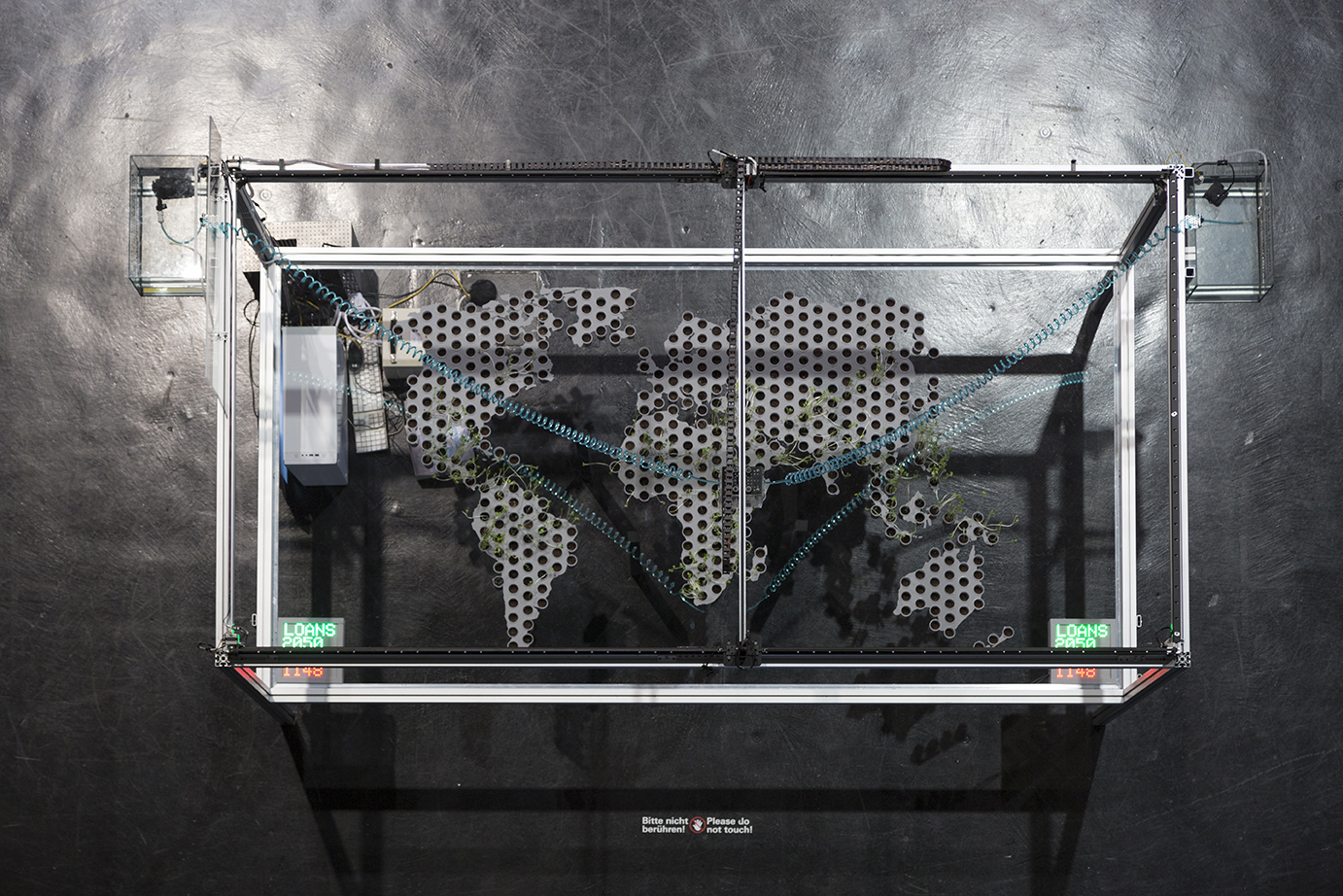
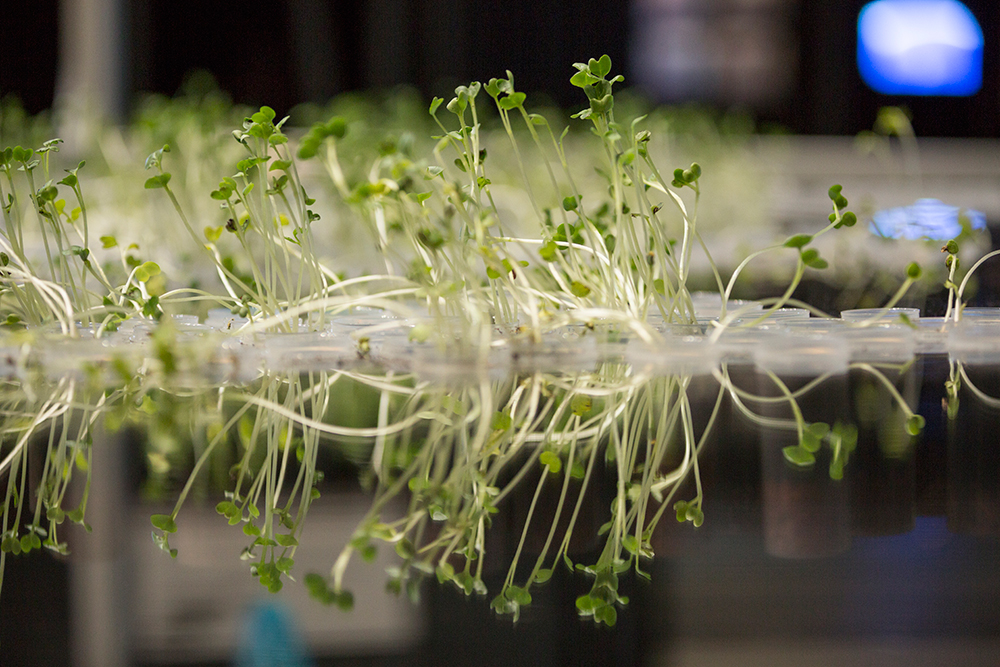
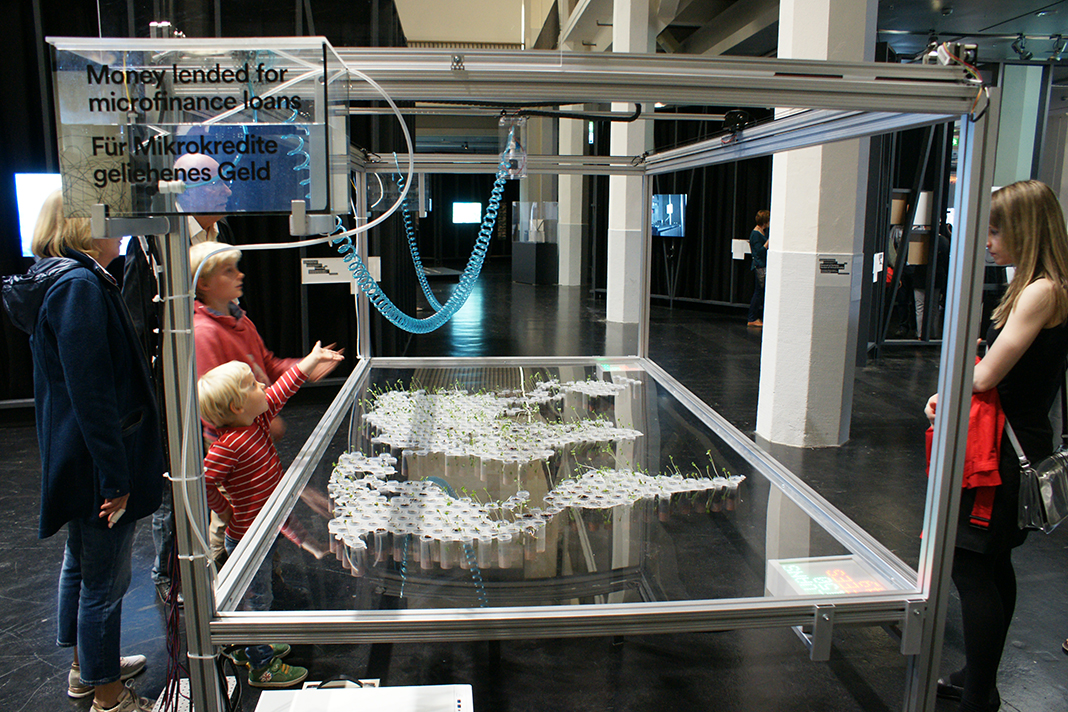
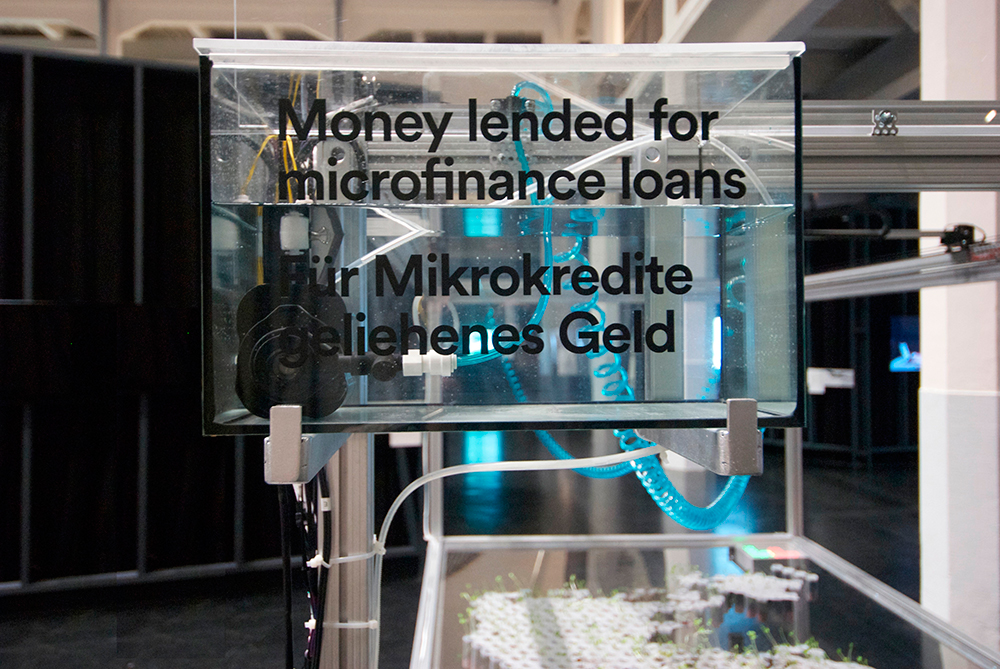
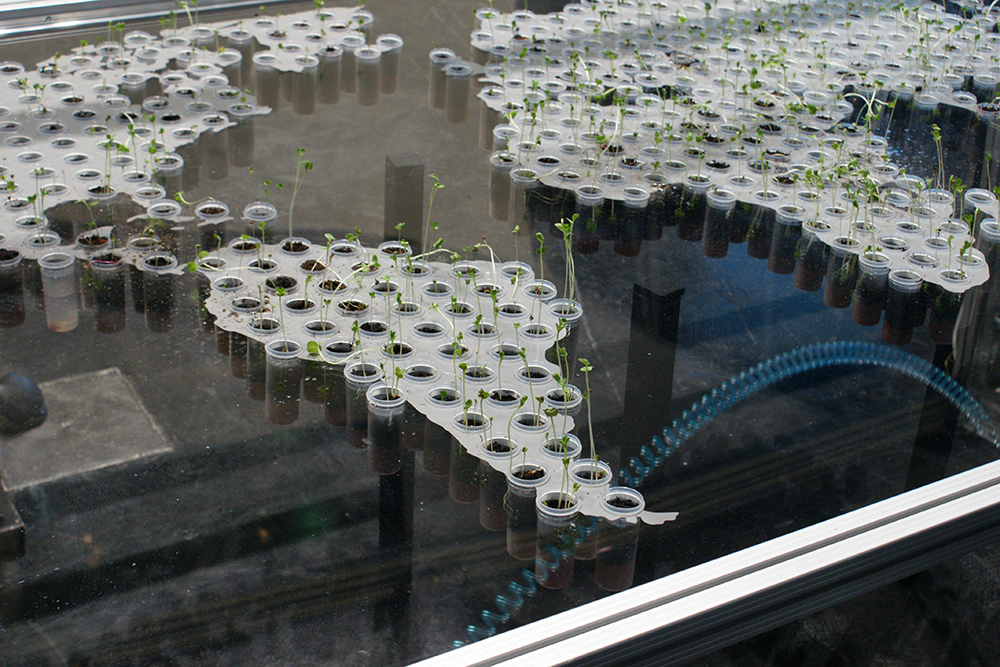
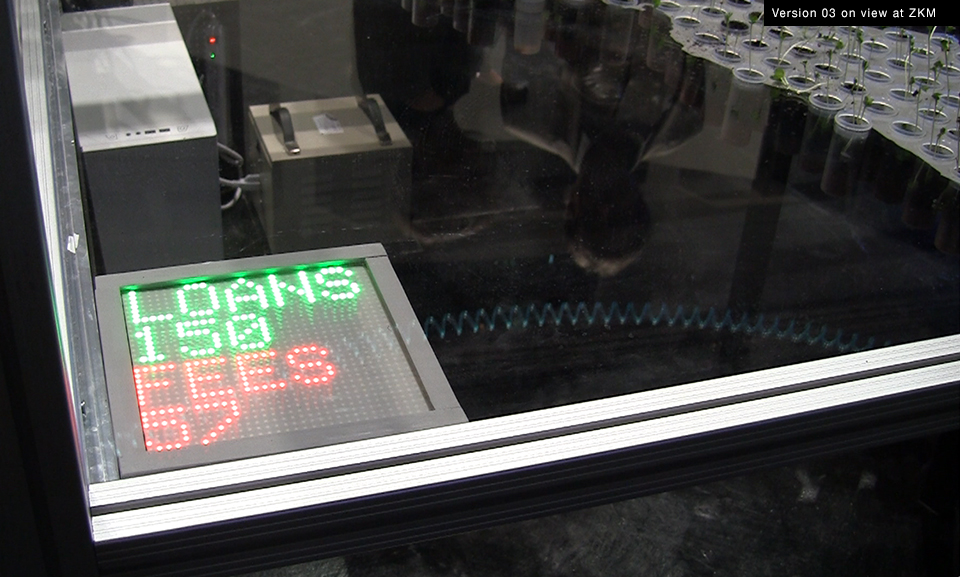
Images from Globale: Infosphere, ZKM Center for Art & Media, Karlsruhe, Germany. Photo image credit: Stephanie Rothenberg and ZKM photographers.
Reversal of Fortune: The Garden of Virtual Kinship is a telematic garden, both real and virtual, whose lifeline directly correlates to monetary exchanges between the developed and developing world. The project examines the cultural phenomena of online crowdfunded charity, or microfinance, through philanthropic social media websites. These websites enable more affluent individuals primarily located in Western countries to collectively donate small amounts of money to individuals and small communities in extremely economically challenged regions such as East Africa and Central America. The funding is intended to finance small-scale “entrepreneurial” goals. Examples of these pursuits include small retail businesses, local agriculture and farming, transportation and health needs. But contradictions abound within this economic model. What goes unseen are the exorbitant interest rates and fees, borrowers must pay. These can range from 30% up to 60% or higher, and for a loan of only a few hundred dollars. Who profits? It isn’t the lenders with good intentions, but an entire network of banks, starting at the local level and up to multinationals.
The Garden of Virtual Kinship makes this controversial economic circuit visible. The live garden takes the form of a global map with the plants residing in small containers within a dot matrix grid. Each plant correlates to a borrower on the social media websites requesting funding. An overhead computerized watering system (CNC) is connected to the Internet. The amount of water the plants receive is dependent on investment information data collected from the websites. Successful entrepreneurial ventures trigger appropriate nourishment while failed ventures may lead to dying plants. Yet the plants that do receive water, only receive a few drops. The majority of the water is pumped into a second tank — symbolizing the high fees and interest rates microfinance borrowers pay (in Version 03 at ZKM).
The project extrapolates on the seminal telerobotic artwork entitled Telegarden created in 1995 by Ken Goldberg that enabled a global community of online users to “telematically” care for a live garden through a web interface.
The goal is to explore the contradictions inherent in this new model of humanitarian activity. Although microfinance websites can help borrowers achieve real material needs and empower them to become successful leaders in their communities, there are disadvantages that are overlooked.
Read my essay about the project “Reversal of Fortune: Visualizing Marketized Philanthropy” in the MONEYLAB READER: An Intervention in Digital Economy. A publication of the Institute of Networked Cultures. Co-edited by Geert Lovink and featuring essays by Franco ‘Bifo’ Berardi, Andrew Ross, Saskia Sassen and Tiziana Terranova.
http://networkcultures.org/blog/publication/moneylab-reader-an-intervention-in-digital-economy
Exhibitions:
How Food Moves: Edible Logistics, Rowan University Art Gallery, Rowan, NJ
March 27 – May 27, 2017
http://www.rowan.edu/artgallery/How_Food_Moves.htm
Samek Art Museum Downtown Gallery, Bucknell University, Lewisburg, PA
Solo Exhibition
Oct 25, 2016-Feb 12, 2017
https://museum.bucknell.edu/2016/08/03/reversal-of-fortune/
Globale: Infosphere, ZKM Center for Art & Media, Karlsruhe, Germany
September 4 2015 – January 31, 2016
https://zkm.de/en/exhibition/2015/09/globale-infosphere
2014 Echo Art Fair, Buffalo, NY
Awarded the Jurors Choice Prize (Version 02 wood frame)
http://www.echoartfair.com
Additional credits:
Version 03 additional coding and CNC fabrication by Tom Stoll and Zeven Rodriguez.
Version 02 CNC watering system designed by Brian Clark.
Side bar video of Version 01 commissioned artwork for MediaCities May 3-5, 2013
Digital irrigation system designed by Bobby Gryzynger and Byron Rich.
Photos of Version 02 by Shasti O’Leary Soudant.
Additional project support:
2014-2015 Lower Manhattan Cultural Council Workspace Residency
2014 University at Buffalo Humanities Institute Fellowship
2015 University at Buffalo Office of the Vice President for Research and Economic Development and Humanities Institute Seed Money in the Arts and Humanities Award
Version 03 documentation from “Infosphere” exhibition at ZKM
Version 02 in wood

